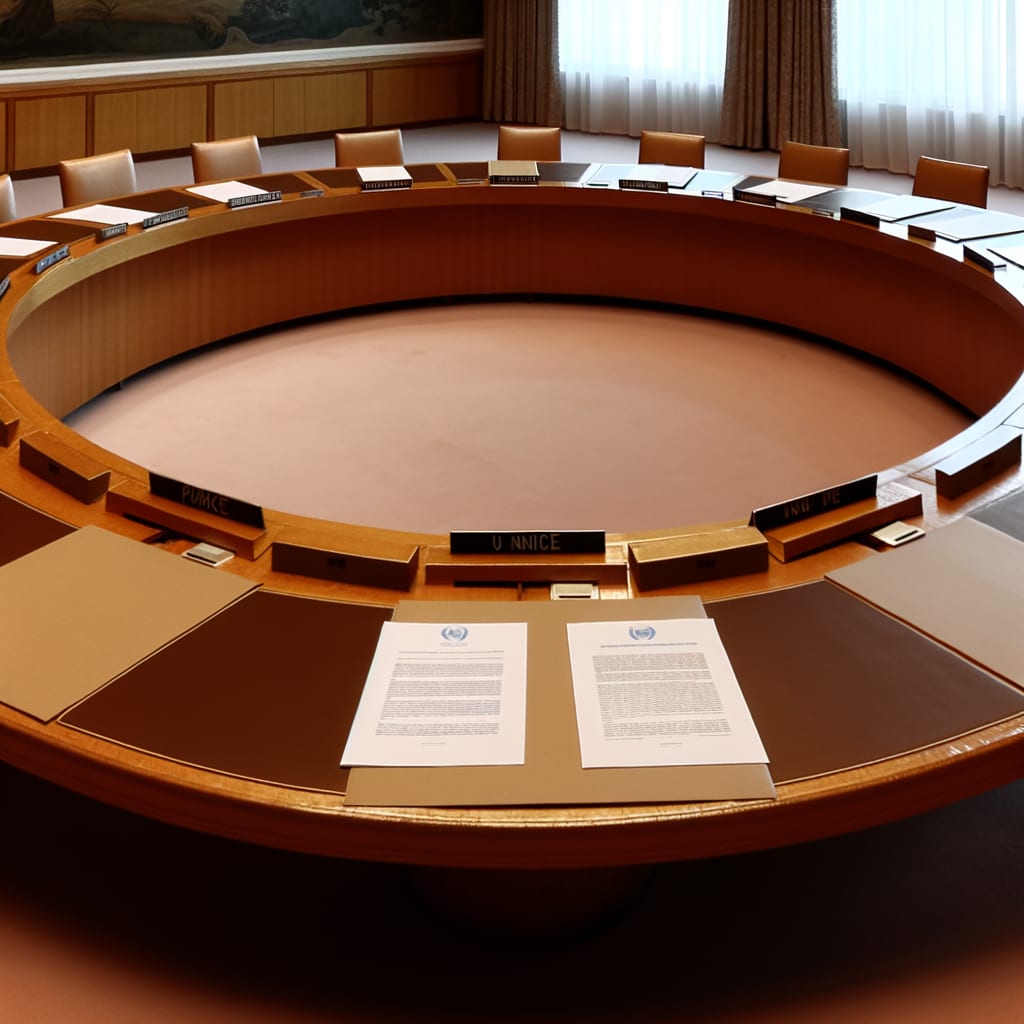UN Security Council Adopts US-Backed Gaza Peace Plan Amid Controversy
The United Nations Security Council (UNSC) voted to adopt a US-backed resolution outlining President Donald Trump's peace plan for Gaza, despite widespread controversy and criticism. The adopted resolution includes provisions for an international stabilization force and a transitional administration for Gaza, while also suggesting a potential pathway to Palestinian statehood.
Background and Context
President Trump's Gaza peace plan, which was approved by 13 members of the UNSC with Russia and China abstaining, marked a significant shift in the US's stance towards the Israel-Palestine conflict. Despite last-minute attempts by Israel to change the language of the resolution to exclude references to Palestinian statehood, the US maintained this controversial aspect, signaling its intent to maintain cordial ties with key Muslim allies.
Key Developments
The resolution outlines a 20-point plan, including a clause for the decommissioning of Hamas weapons, the establishment of a transitional administration for Gaza, and the proposal for an 'international stabilization force'. Despite these provisions, no explicit timeline or guarantees for Palestinian statehood have been provided in the proposal.
The Trump administration also reportedly approached Yemen’s internationally recognized government about potentially contributing to the international stabilization force in Gaza, according to reports by the AFP.
The plan has faced significant criticism, both domestically and internationally, with Palestinian factions warning that the resolution threatens Palestinian national authority, effectively stripping Palestinians of their right to manage their own affairs.
Reactions and Implications
Reactions to the resolution have been mixed. The US and EU lauded the resolution, with President Trump declaring the vote as one of the biggest approvals in the History of the United Nations
and the EU describing it as an important step
. However, critics view the resolution as a potential cover for Israel’s ongoing military campaign and a threat to Palestinian sovereignty.
Israel’s Prime Minister, Benjamin Netanyahu, rejected the notion of Palestinian statehood following the resolution, causing further controversy and sparking fury among his far-right coalition.
Meanwhile, in Gaza, the resolution was met with strong opposition. The UN's approval of the plan was called a day of shame,
with Palestinians expressing concerns that it strips them of their right to manage their own affairs.
Conclusion
Despite the adoption of the US-backed resolution, its implications for the Israel-Palestine conflict remain uncertain. Critics argue the resolution provides a veneer of legitimacy to Israel's occupation, while supporters view it as a constructive step towards peace in the region. As the international community awaits the implementation of the plan, the resolution continues to stir controversy and debate worldwide.

